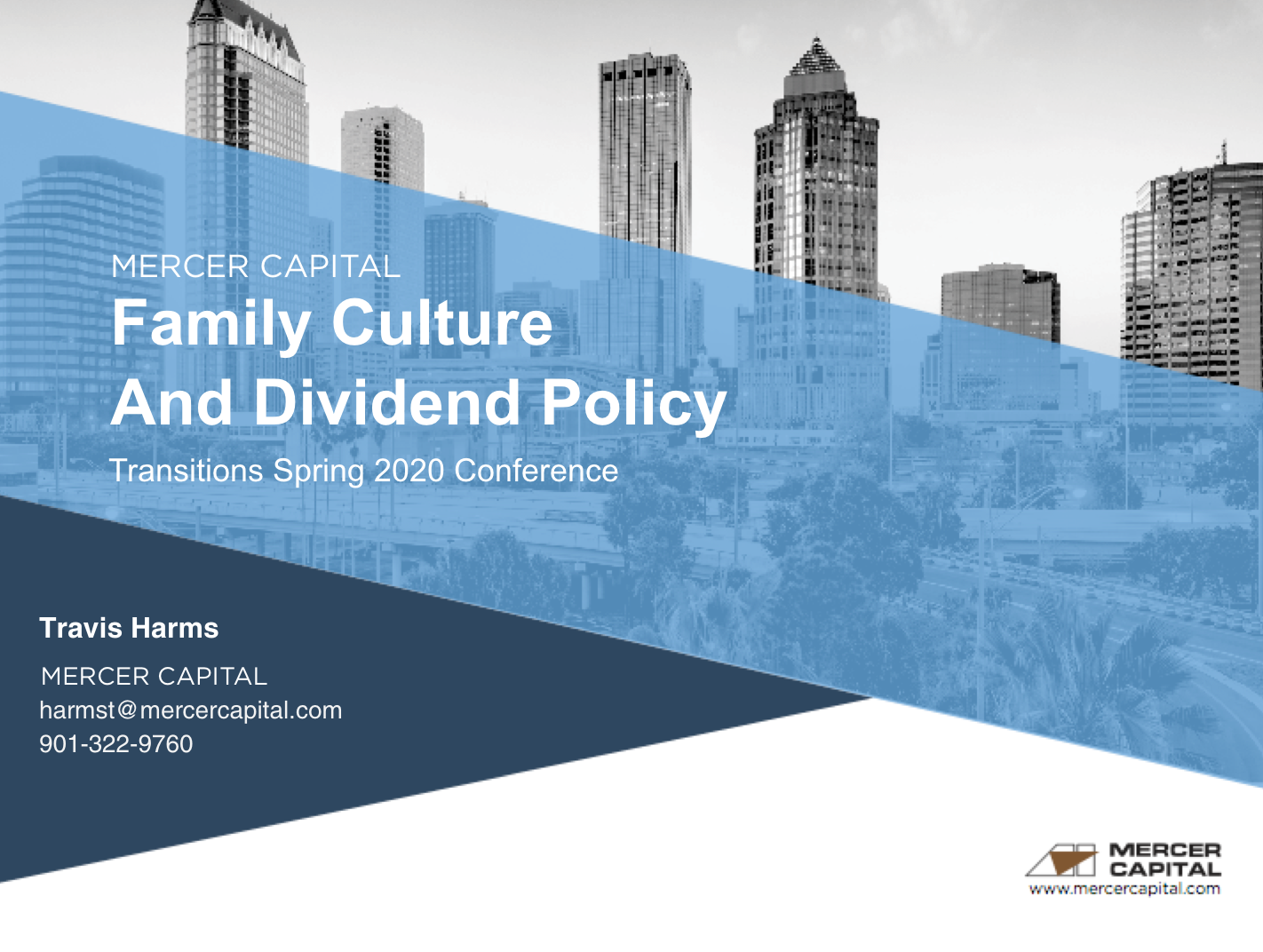Notes from Transitions Spring 2020
Family Culture and Dividend Policy
Family Business Director attended the Transitions Spring 2020 conference in sunny Tampa last week. The staff at Family Business magazine does a great job organizing and hosting the gathering of a few hundred representatives from 80 or so successful enterprising families. The hallmark of the conference is the opportunity for families to share their experiences and learn from the experiences of others.
The theme for the conference was family culture. We enjoyed discussing the real-life challenges family businesses face when integrating family culture and dividend policy during two breakout sessions with attendees.
For many family shareholders, the quarterly or annual dividend is the single most effective measure of how the family business is doing. Financial reports may or may not get read, but dividend checks always get cashed. As a result, setting the dividend is one of the most momentous decisions family business leaders can make. Getting the dividend “right” can contribute to growth in the business and harmony within the family, while failing to do so can weigh down the business and sow discord among family members.
A successful dividend policy for your family business must “fit” both your family culture and the financial realities of the family business
Setting dividend policy has direct financial effects on the family business. Yet, restricting the dividend decision to financial considerations may prove to be short-sighted. Dividend policy both shapes and is shaped by family culture. A successful dividend policy for your family business must “fit” both your family culture and the financial realities of the family business.
There were a few recurring themes from participants in our sessions that we will be thinking about over the coming weeks and months:
- The family business rarely “means” the same thing to all of the family shareholders. For some shareholders, the family business is a relatively small portion of a well-diversified portfolio, while, for others, the family business is the only basket their eggs are in. This difference is perhaps the greatest obstacle to formulating a dividend policy that promotes positive shareholder engagement.
- The thorniest aspect of dividend policy for some families is properly segregating returns to capital from returns to labor. When all family members are actively working in the business, there is less incentive to clearly distinguish wages (attributable to working in the business) from dividends (attributable to owning shares). As the family shareholder base inevitably expands to include non-employee family members, the need to separate wages from dividends becomes acute.
- The tension between paying dividends and reinvesting earnings in the business is heightened in families that are growing biologically. For especially prolific families, the inability of the business to match the pace of family growth means that family shareholders may need to be prepared for the possibility of dilution in per capita dividends from the family business over time.
- While the non-economic benefits of owning a family business such as legacy and community impact are very real, family businesses still need to provide returns commensurate with the risk borne by family shareholders. The world is full of alternative investments, and as families get into the third and subsequent generations of family ownership, family business leaders need to demonstrate that the total return (dividend yield plus capital appreciation) from owning shares in the family business is competitive with what family shareholders could expect to receive elsewhere.
We don’t think these challenges are insurmountable. But they do underscore the unique difficulties family business directors face when making complex decisions that influence the health of both the family and the business. Venues like the Transitions conference provide a great opportunity to compare notes with other similarly-situated family businesses. We look forward to similar conversations with more family businesses over the course of 2020. If you would like to discuss your situation in confidence, give one of our family business professionals a call today.
Click the link below to download a copy of Mercer Capitals’ presentation Family Culture And Dividend Policy
 Family Business Director
Family Business Director 












